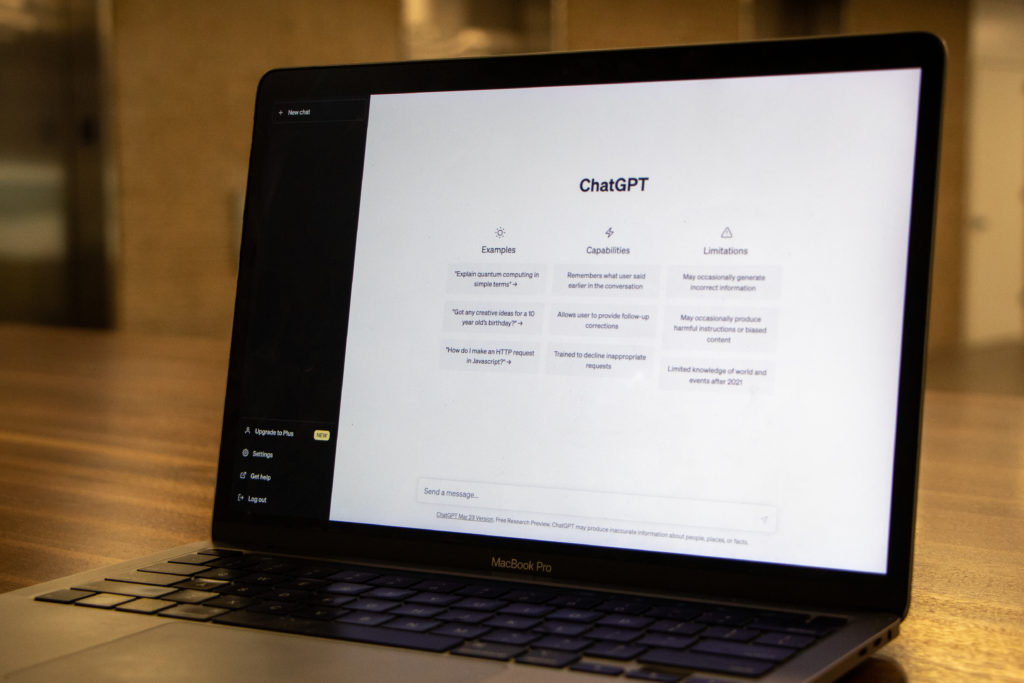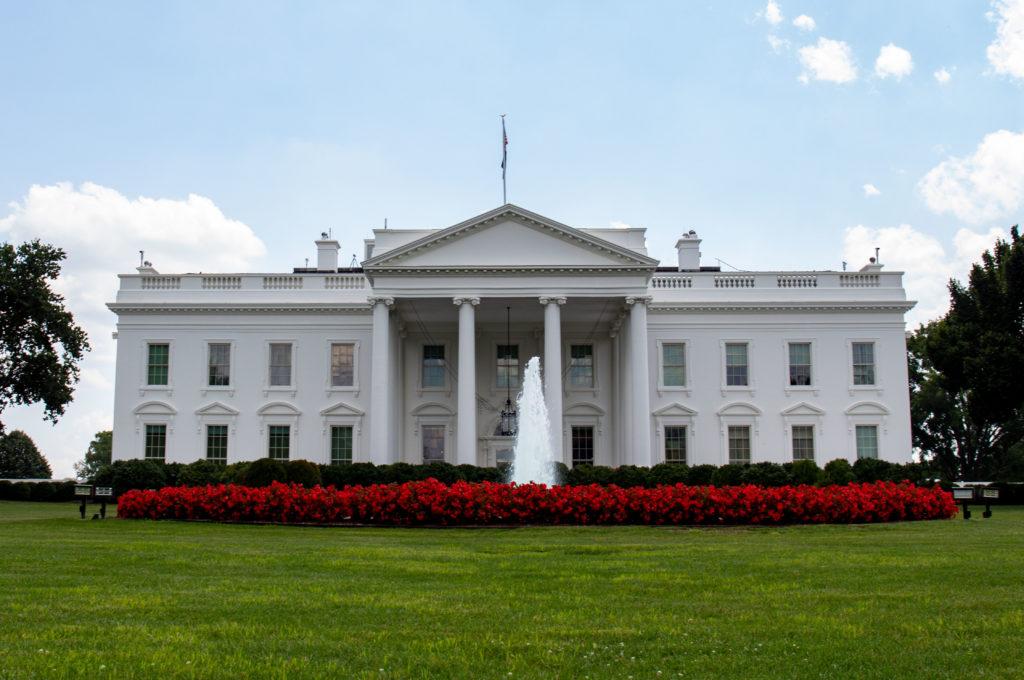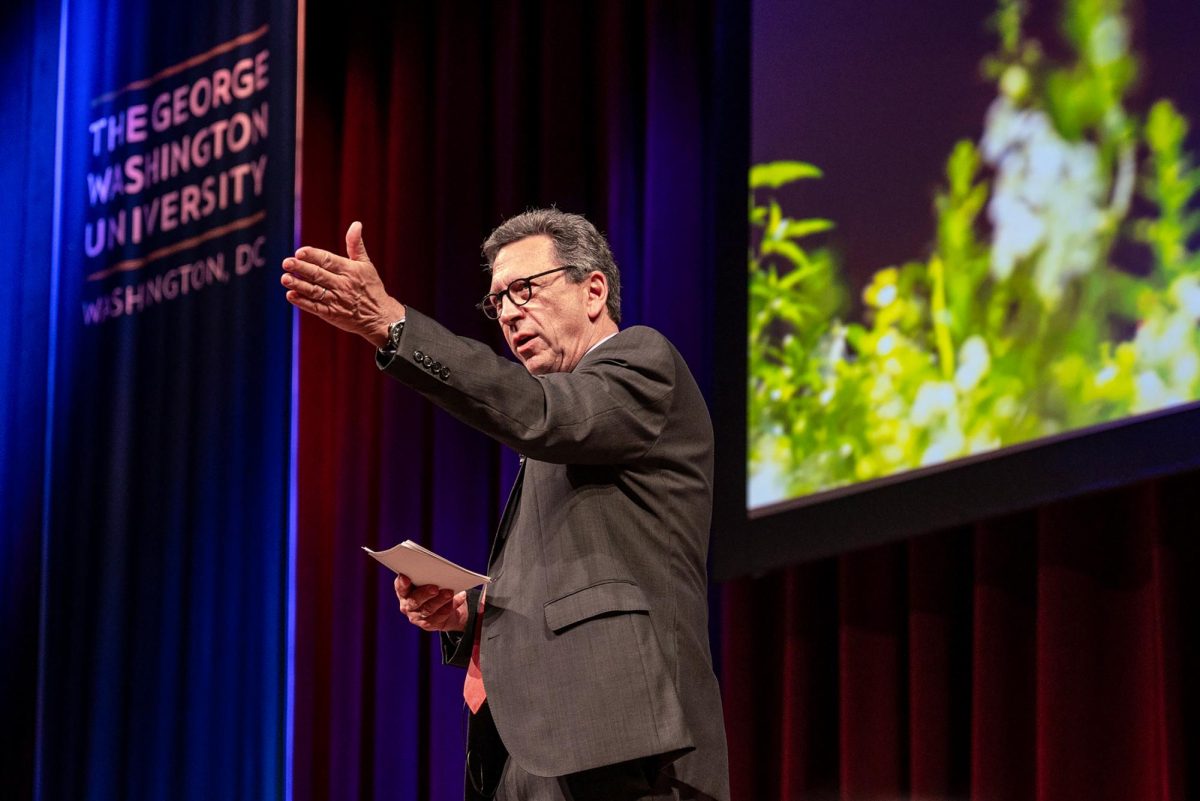Officials released guidelines for student and faculty use of generative artificial intelligence tools in an email to the GW community Friday.
Provost Chris Bracey shared recommendations that consider students’ use of GAI tools on work submitted for evaluation cheating per the University’s Code of Academic Integrity and encourage faculty to clearly communicate their expectations for students’ use of GAI tools in writing. The guidelines follow officials’ announced plans to codify the permitted and prohibited use of AI tools in the Code of Academic Integrity in January after a national surge in students’ use of AI tools like ChatGPT.
“Faculty are invited to make thoughtful use of GAI tools in their teaching and research,” the guidelines state. “Used properly, GAI tools can enhance the design of lessons, assignments and assessments.”
The guidelines suggest faculty members adopt one of three options for regulating students’ use of GAI in their classrooms – generally permit the tools in their courses, generally forbid the tools or permit the tools only in “certain purposes on certain assignments” at the faculty member’s discretion, according to the guidelines.
In the absence of guidance from faculty, the default rules allow students to use GAI tools to study for an assessment or “brainstorm” ideas for an assignment where internet use is not outrightly prohibited. The guidelines state professors could assign exercises related to GAI tools to their students to teach them how to use the tools “effectively and responsibly,” like identifying “superficial rhetoric” in general artificial intelligence-generated writing.
“For all their promise, GAI tools misused could interfere with learning objectives and impair the development of students’ writing, analytical and technical skills,” the guidelines state. “There are also legitimate concerns about academic ethics, accuracy, citation of sources and cheating.”
The guidance provided in the document does not apply to GW Law and the School of Medicine and Health Sciences, as they hold their own codes of academic integrity, according to the guidelines.
Bracey said in the email that Jeffrey Brand, the associate provost for undergraduate affairs and special programs, Christy Anthony, the director of the Office of Student Rights & Responsibilities and faculty members on the Faculty Senate’s Educational Policy and Technology committee worked with the Provost’s Office to develop the GAI guidelines.
Bracey said at the senate meeting Friday that the guidelines were released following “a number of requests for guidance” as final examinations and paper submission deadlines approach this spring. He said he will continue to make “periodic updates” to the guidance as the University community learns more about GAI tools.
“We wanted to make sure that we’re getting both faculty and students an opportunity to understand what sort of expectations we have at this particular moment to avoid any unnecessary integrity claim cases or allegations,” he said at the meeting.
During the senate meeting Friday, committee members said officials did not consult them on the GAI guidelines before Bracey issued the recommendations.
Sarah Wagner, a faculty senator and a professor of anthropology, said she was “taken aback” by Bracey’s announcement because officials did not consult the entirety of the Education Policy and Technology committee on the guidelines. She said Bracey’s announcement was an example of where GW “just didn’t get it right” regarding shared governance between faculty members and administrators.
“We have a faculty who are very concerned about this, who are in the weeds on this and we didn’t have a chance to look at the guidance,” Wagner said.
Bracey said at the senate meeting Friday that he consulted with “various groups” about the guidelines over the course of the semester, and that representatives from the Education Policy and Technology committee reviewed two versions of the draft. He said he hopes to improve upon shared governance principles in the next administration, as interim University President Mark Wrighton’s tenure ends July 1.
“Certainly President-Elect Granberg when she arrives in July will be anxious to operationalize principles of shared governance in ways that are more constructive,” he said.











